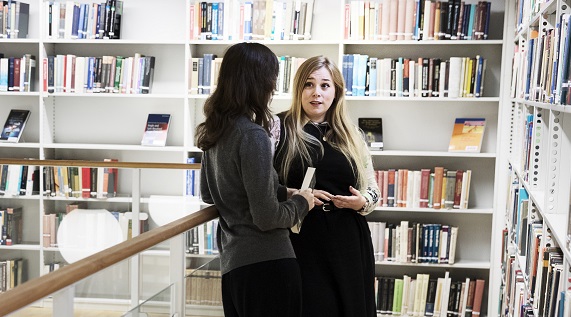Source criticism
Being able to review and evaluate information is important in all contexts, but especially when you are looking for scientific material to use in your work. To use a specific source in, for example, your thesis, you must first try to decide whether it has value and relevance to your context. Being critical of your sources helps you determine whether the information in them is credible. Critically evaluating sources is an important part of the search process and academic writing.
There are different ways to evaluate information. Read about the CRAAPP test and characteristics of scholarly sources that you can use to examine the content of your sources.
Source critical questions - CRAAPP
The CRAAPP test means that you assess the source based on the following questions:
- Currency - When was the information published? Is it still current? Has there been more recent research?
- Relevance - How well does the source meet your needs? Does the information relate to your topic at the correct level - is it not basic or too advanced? Which is the intended target group?
- Authority - The value of the source - where does the information in the source come from? Has it been reviewed?
- Accuracy - Is the information correct and credible? Has it been peer reviewed?
- Purpose - Why does the information exist? Is it objective? What is the purpose of the text - does it intend to present new research, facts or opinions? Is the text well written?
- Publication - Who is the publisher? Is it a well-known publisher or a private person? Is the publisher well-known in the specific field?
Scientific sources - characteristics
What are the characteristics of scientific sources?
- Who writes and publishes? Universities, colleges and research institutes act as publishers for the source. The authors are researchers.
- Where are they published? Examples: Scientific books, scientific journals, research reports, conference publications, doctoral theses.
- What is the purpose? Reaching out with research results.
- Who is the target group? Experts, other researchers and students.
- Is it a primary source? The source that publishes new research first counts as its primary source.
- Is the publication peer-reviewed? Scientific journal articles are often reviewed by experts before they are published, this review is called peer-review.

